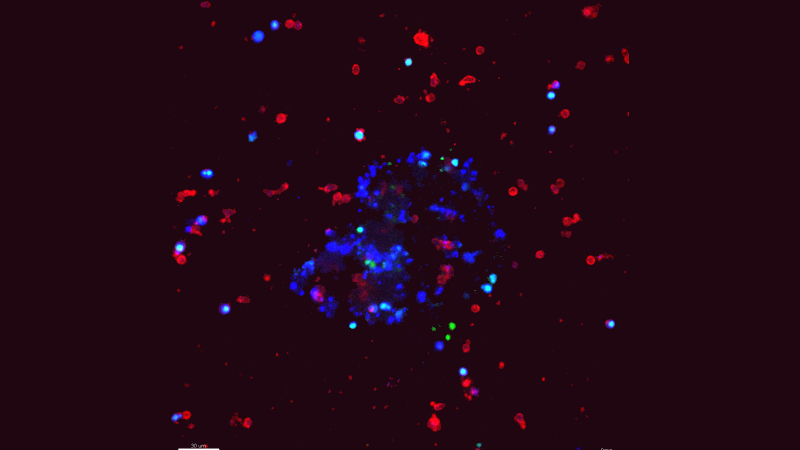Johns Hopkins Kimmel Cancer Center investigators report they have uncovered a new mechanism by which invasive breast cancer cells evade the immune system to metastasize, or spread, to other areas of the body. They propose that therapies targeting this process could be developed to halt or prevent metastasis and reduce breast cancer deaths.
Natural killer (NK) cells, a type of immune cell, are known to limit metastasis by inducing the death of cancer cells. But metastases still form in patients, so there must be ways for cancer cells to escape. Using a novel cell culture method developed by lead author Isaac Chan, M.D., Ph.D., a medical oncology fellow at Johns Hopkins working in the laboratory of Andrew Ewald, Ph.D., the researchers studied the interactions between NK cells and invasive breast cancer cells in the laboratory in real-time. They discovered that metastatic breast cancer cells can reprogram NK cells so that they stop killing cancer cells and, instead, assist in metastasis.
This work, published July 9 in the Journal of Cell Biology, also reports new immunotherapy strategies that reverse this reprogramming process in mouse models of breast cancer metastasis.
